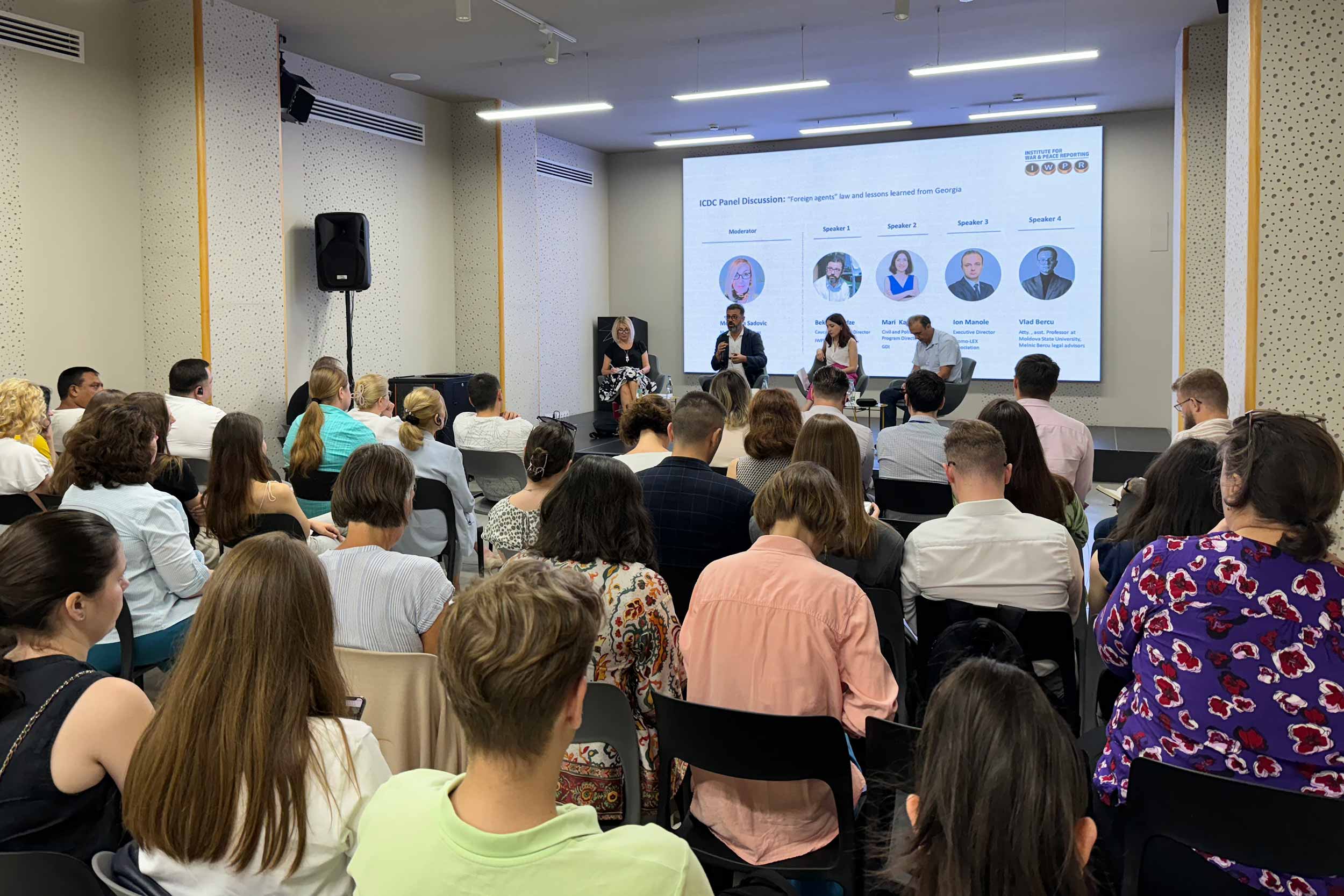Georgia’s Foreign Agents Law and the Lessons for Moldova
Chisinau event hosts discussions on how strategising and building resilience could prevent similar developments.
IWPR brought Moldovan civil society and media groups together to discuss the implications of Georgia’s highly controversial ‘foreign agents’ law, aimed at muzzling civil society and stigmatising government opponents, at a Chisinau round table.
The event examined the role that disinformation played in this process, and how Moldovan civil society could learn from Georgia’s experience and work to prevent similar developments.
The Law on Transparency of Foreign Influence, adopted by the Georgian government in May 2024, requires all non-profit groups and media organisations that source more than 20 per cent of their income abroad to register as entities serving foreign interests.
This even includes organisations that provide services to vulnerable and marginalised groups, such as the elderly and people with special needs.
Moscow has used similar legislation as a basis for cracking down on civil society and free media, and a coalition of some 500 Georgian civil society and media organisations made clear that the law was a Russian tool of suppressing freedom of speech.
IWPR Caucasus regional director Beka Bajelidze told the July 29 event that the law had been fuelled by disinformation narratives “focused mainly on the alleged threats to Georgia’s traditional values coming from the West”.

However, he noted that the legislation’s real purpose was to “silence the independent civil society and media who had been very strong and had kept the government accountable since Georgia’s independence in 1991. Now, they will be stigmatised as foreign agents”.
Mari Kapanadze, civil and political rights programme director of the Georgian Democracy Initiative (GDI), added that Tbilisi had been gradually discrediting civil society and independent media since the current government came to power in 2012.
“Civil society in Georgia was quite late in recognising the warning signs,” she said. “We should have been more prepared, especially when it comes to crisis management. Also, we should have been more united and more proactive; instead, we waited until it was too late.”
Her message for Moldovan civil society and independent media was to learn from their Georgian counterparts’ mistakes and “to think ahead and diversify their sources of income.”
“Also, any action taken by the media and CSOs should be structured, and they should present a united front,” she concluded.
The Georgian panellists said that they still hoped that the opposition would win parliamentary elections scheduled for October this year and overturn the law. Otherwise, they predicted that while some NGOs might accept being labelled as promoting foreign interests, others would relocate their headquarters to European countries such as Estonia, Latvia and even Moldova.
“This ‘brain drain’ would have a serious, long-term impact on Georgia’s vibrant civil society and independent media and Georgia’s society as a whole will be crippled,” Bajeldize said.
Executive director of Moldova’s pro-democracy Promo-LEX NGO Ion Manole raised the prospect of the Georgian scenario being repeated in his country, especially if the pro-Western ruling party loses its parliamentary majority in next year’s elections.
“We were shocked to see how quickly this law was enacted in Georgia, and I am afraid that a similar thing can happen in Moldova,” he said. “We are very divided and the Moldovan people do not trust us.”
Manole noted that public confidence in Moldovan civil society and media was currently only at 20-25 per cent, which is “troubling and needs to change”.
He continued, “This can be achieved only through a nationwide campaign, or at least synchronised activities that would include discussions with local communities throughout Moldova about the importance of having independent civil society and media serving as a watchdog and ensuring accountability of the Moldovan government and local authorities.”
The event was held within the framework of the Independent Countering Disinformation Centre (ICDC) initiative, which is being supported by IWPR and the UK government.
One of the ICDC’s key objectives is to become a platform enabling civil society and independent media in Moldova to collaborate, exchange views and unite efforts in building wider resilience to malign influences from hostile actors.
The centre was launched in September 2023 and has already organised more than a dozen events bringing together stakeholders as well as local and international experts to discuss issues related to disinformation.
This publication was prepared under the “Countering Disinformation in Moldova” project.
